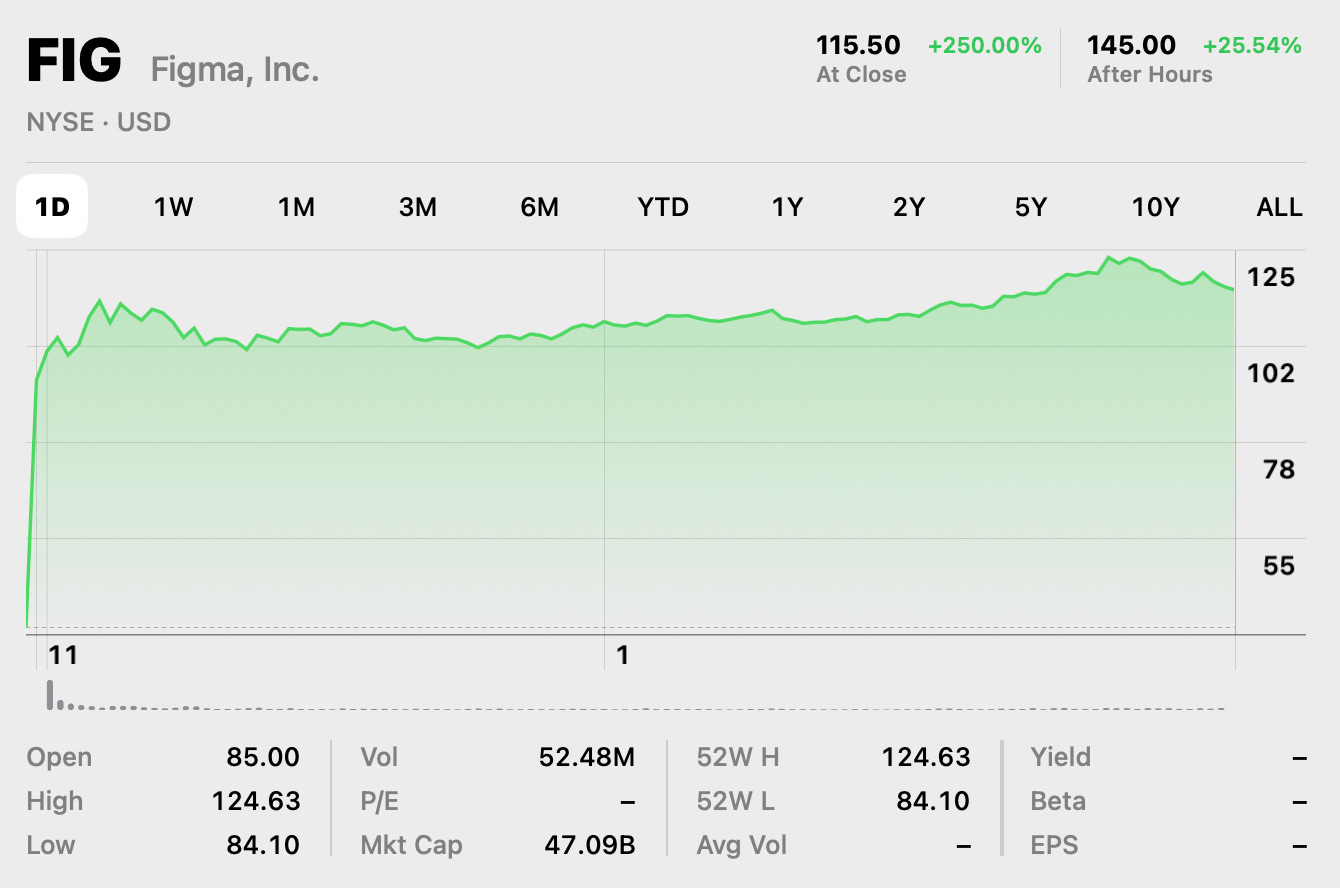IPOs: A Parade for Ambition
Going public is the adult version of 'look what I made.'
Every so often, America throws a parade for ambition. We call it an IPO.
A startup goes public. The founder rings a bell. CNBC treats it like the moon landing. LinkedIn responds by entering its final, most insufferable form. Nobody mentions the part where the business still isn’t profitable.
Yet, it’s a moment when private ambition becomes public narrative.
Because somehow, against all odds, a group of weirdos with a whiteboard and a group chat made it real enough for everyone else to believe.
And the market replies: “Cool. We believe it too (at $100 a share). For now. Unless rates go up, or growth slows, or something better comes along next week.”
An IPO, like Figma’s, isn’t just a financial event. It’s a cultural one.
A vibes-based money festival.
An act of storytelling that just happens to involve charts and graphs.
And, somehow, it works.
Because under the noise, something real happens:
People start dreaming again.
Not because the financials are great (they’re usually not).
Not because Figma is a Photoshop killer (though, maybe it is).
But because capitalism (despite many of its negatives) still occasionally rewards belief.
Not results. Not revenue. Just the ability to convince a roomful of adults that your thing is worth billions.
And then, magically, it is.
This creates an inspirational feedback loop.
Entrepreneurs feel it. Teenagers notice it.
And somewhere, a kid watches the bell ring and quietly thinks:
“Wait... you can do that?”
Because the IPO isn’t really about money.
It’s about permission.
Permission to try.
Permission to believe your ideas aren’t ridiculous.
Permission to take yourself seriously, before everyone else does.
It’s messy. It’s theatrical. It’s often deeply unprofitable.
But it works.

